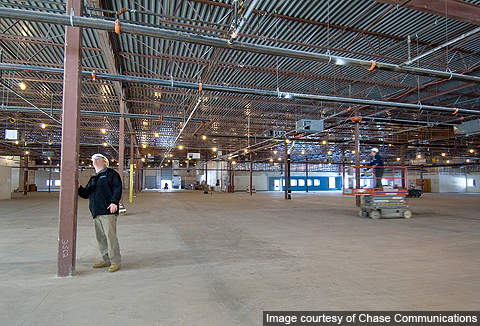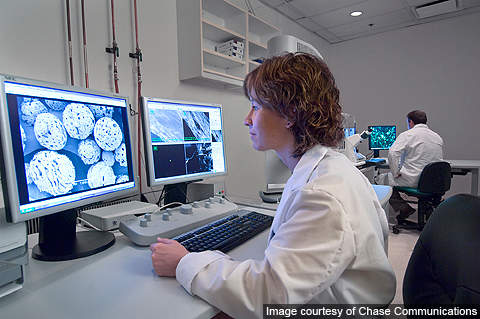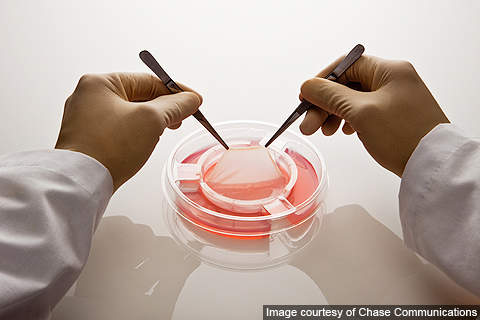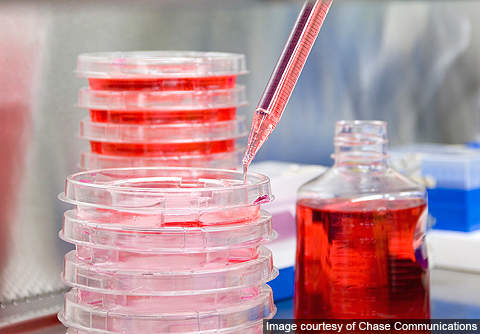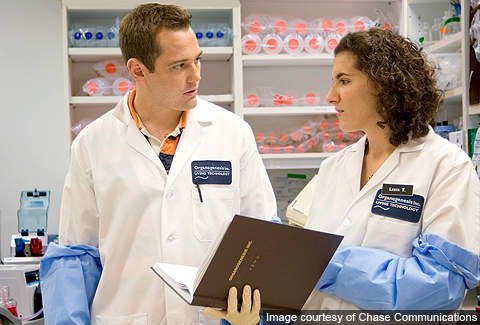US-based regenerative medicine maker Organogenesis broke ground on the world’s largest automated living cell manufacturing facility on 13 April 2011. The facility will be located in Canton, Massachusetts, US.
The new plant will help strengthen the company’s position in the field of regenerative medicine. Construction of the facility is scheduled for completion by 2012. Following FDA approval, it is expected to begin operations by 2013.
The Organogenesis plant is the fourth building added to Organogenesis’ Canton campus, as part of the company’s two-phased expansion strategy. Total investment towards the expansion is $65m, with $40m allotted for phase one. The leased facility was acquired in 2008 for $3m and is currently in the process of being refitted.
Facility details
The state-of-the-art facility will be a 95,000ft² single-storey building. It will accommodate 60,000ft² of manufacturing area and quality labs.
The plant will also be equipped for shipping / receiving and other support systems. State-of-the-art robotic and modular manufacturing technologies are being incorporated in the plant.
Expansion of the Organogenesis plant
As part of phase I of the expansion, Organogenesis relocated from its original headquarters at 150 Dan Road to its new 78,000ft² headquarters at 85 Dan Road in September 2010. The new headquarters includes space for a 10,500ft² expansion.
The original 79,000ft² headquarter building is currently serving as the primary research and development lab centre as well as a pilot manufacturing site for smaller volume product lines. It has nearly 15,000ft² of cleanroom space and 10,000ft² of laboratory areas.
A new 78,000ft² building at 65 Dan Road was acquired by the company in April 2011, bringing the total campus space to 330,000ft². Nearly 30% of this building will be dedicated for warehousing purposes with additional space to be used for the company’s rapid growth. All the four buildings are located within a distance of 100 yards.
Production
The new facility will produce Organogenesis’ flagship product Apligraf, a high-tech skin patch based on living cells, which helps cure chronic wounds including venous leg ulcers and diabetic foot ulcers. These open wounds are not healed by the immune system of the body.
Technology
The Organogenesis facility will use Corning’s Transwell technology to develop the product. Organogenesis partnered with Corning for the development of the 75mm Corning Transwell cell-culture insert that has been designed to create a cell-culture environment that is almost similar to that of the human body.
A distinct permeable membrane allows cells to perform metabolic activities in a natural way as it happens naturally within the body.
Financing the Organogenesis project
The project has been partially funded by a $7.4m grant received by the company from the Massachusetts Life Sciences Center over two years. The centre provided the first instalment of $3.7m in 2009 and the remaining $3.7m in 2010.
The funds were offered as part of a $1bn life science initiative implementation by the Massachusetts Life Sciences Center. The 10 year life science initiative was signed into law in June 2008.
The company also received a $12.9m incentive package from the Massachusetts Office of Business Development. The package includes grants and tax credits for expansion related to research and development.
The state also granted up to $5m in low-interest loans as part of its policy of funding growth initiatives.
As per the terms of the agreement, Organogenesis will have to create 280 new jobs by 2013, including 17 in 2011. As of April 2011, the company has exceeded the requirement with 19 new employees already hired and 35 jobs open for new hires.
Contractors
The contract to provide the architecture for the Organogenesis plant was awarded to Cambridge-based SMMA/Symmes Maini & McKee Associates. CRB Consulting Engineers has been brought on board to provide ngineering services for the plant.

